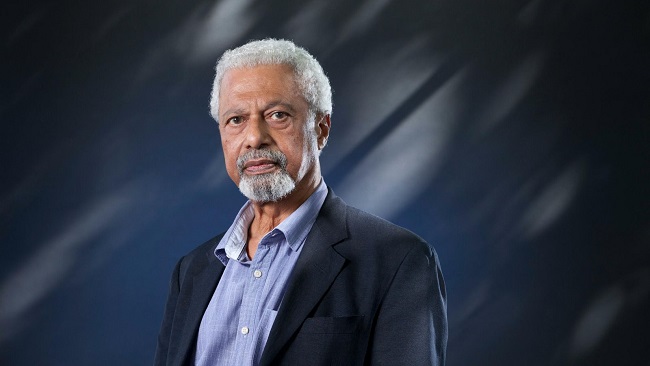22, October 2021
Prop gun fired by actor Alec Baldwin kills cinematographer on movie set 0
US actor Alec Baldwin fired a prop gun that killed a cinematographer and wounded the director on a film set in New Mexico, US law enforcement officers said on Thursday.
The incident happened on the set of ‘Rust’ in the southwestern US state, where Baldwin is playing the lead in a 19th-century western.
Cinematographer Halyna Hutchins and director Joel Souza “were shot when a prop firearm was discharged by Alec Baldwin,” the sheriff in Santa Fe said in a statement.
Hutchins, 42, was transported to hospital by helicopter but died of her wounds, while Souza, 48, was taken by ambulance and is receiving treatment.
“Mr. Baldwin was interviewed by detectives,” Santa Fe sheriff spokesman Juan Rios told AFP.
“He provided statements and answered their questions. He came in voluntarily and he left the building after he finished his interviews. No charges have been filed and no arrests have been made.”
The Santa Fe New Mexican published pictures of a distraught-looking Baldwin which it said were taken in the parking lot of the set after the tragedy.
The paper said its reporter had seen the actor in tears after he had been quizzed by investigators.
One photograph shows a man, presumed to be Baldwin, doubled over.
A spokesperson from the production told The Hollywood Reporter the “accident” involved the misfire of a prop gun with blanks.
The incident took place at the Bonanza Creek Ranch, a production location near Santa Fe which is popular with Hollywood filmmakers.
Movie sets usually have stringent rules over the use of prop weapons, but accidents have happened.
Most famously, Brandon Lee, the son of martial arts legend Bruce Lee, died during filming of “The Crow” after being shot by a gun that was supposed to fire blanks.
Baldwin co-produces the film and stars as Harland Rust, an outlaw whose grandson is convicted of murder, and who goes on the run with him when the boy is sentenced to hang for the crime.
The 63-year-old posted a photograph earlier Thursday on Instagram showing him apparently on set, dressed in a period costume and with fake blood on his shirt.
“Back to in-person at the office. Blimey… it’s exhausting,” he captioned the picture, which went online several hours before the incident.
A joint statement by John Lindley and Rebecca Rhine of the International Cinematographers Guild said news of Hutchins’ death was “devastating”.
“The details are unclear at this moment, but we are working to learn more, and we support a full investigation into this tragic event. This is a terrible loss, and we mourn the passing of a member of our Guild’s family,” the statement, reported by Variety, said.
Baldwin has been on television and in films since the 1980s.
He starred in a number of high profile movies, including in ‘The Hunt for Red October’ and two iterations of the “Mission: Impossible” franchise, and has also voiced animated characters in hits like “The Boss Baby”.
He garnered new fans with his long-running portrayal of Donald Trump on “Saturday Night Live”, a character that irritated the former president, but won Baldwin a Primetime Emmy.
“Rust” also stars Jensen Ackles (“Supernaturals”) and Travis Fimmel, best known for playing Ragnar Lothbrok in “Vikings”.
The Bonanza Creek Ranch where Thursday’s incident took place has hosted productions including ‘Hostiles,’ ‘Cowboys & Aliens,’ ‘3:10 to Yuma,’ ‘Appaloosa’ and ‘Longmire.’
Source: AFP


























23, October 2021
Biya regime to vaccinate civil servants against COVID-19 0
Cameroon will inoculate all personnel on state payroll against COVID-19 next month as part of its nationwide vaccination program, a government minister has said.
The civil servants will be vaccinated from Nov. 6 to 30, Minister of Public Service and Administrative Reform Joseph Le said Thursday.
“The preservation of the health of personnel at the service of the state is both a major concern and a duty of public authorities,” he said. “We must ensure that the work environment is not a place where the virus spreads, but a framework for professional development and health promotion for all.”
Le said vaccination will not be compulsory but urged all civil servants to get vaccinated to protect themselves and their loved ones.
On Wednesday, the United Nations Office for the Coordination of Humanitarian Affairs in Cameroon, quoting government statistics, said the central African nation reported 4,024 positive cases from Sept. 21 to 28, the highest weekly count since March, and raised an alert on the presence of the Delta variant.
Cameroon wants to vaccinate 60 percent of the target population by January 2023, but as of Sept. 22, only 0.9 percent had been vaccinated, according to figures from the Expanded Program on Immunization.
Source: Xinhuanet